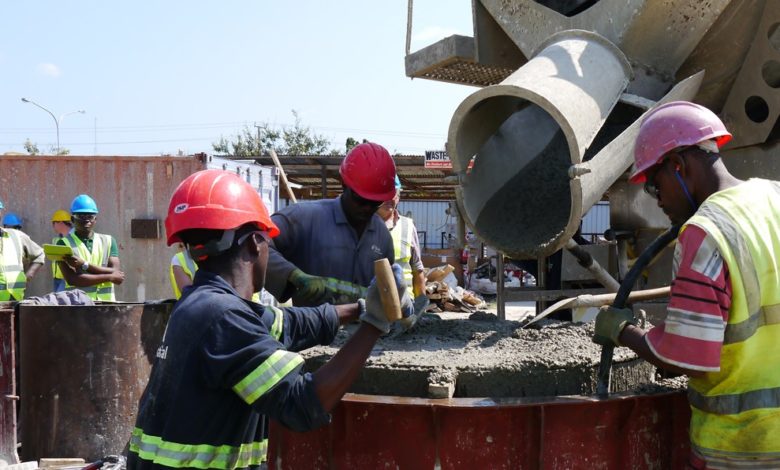Cameroonian Researcher Produces Environmentally Friendly Cement

A Cameroonian researcher at the Douala University Institute of Technology has concocted a new kind of cement that is ecologically friendly and protects the environment.
Made from pozzolan volcanic dust and ash derived from the incineration of urban waste, the cement is the result of four years of scientific work by Dr. Sylvain Tome and is designed to protect the environment from toxic degradation.
The project was launched in 2016 when the specialist in material chemistry began research work for his doctoral thesis at the Douala School of Applied Fundamental Sciences of the Douala University.
“We discovered that the rate of urbanization in Cameroon has been rising considerably during the past years, leading to increased consumption of construction materials such as ordinary cement.
“But the production of this cement requires a lot of energy and it pollutes a lot”, the researcher said.
Assisted by a team comprising the director of his thesis and director of the University Institute of Technology Prof. Jacques Etame, the head of the Department of Chemistry in the Faculty of Sciences of the University of Douala and Dr. Sanjay Kuma, the researcher succeeded in producing a substance with a feeble ecological footprint which enables the construction of ecologically healthy houses.
The composition of the said cement has demonstrated, after laboratory tests, “a good resistance to aggressive agents such as acid or salty areas, in the case of Douala which is near the sea. This ensures the durability of the construction”.
Dr. Tome revealed that his cement has already been tested in the construction of pavements along some of the country’s national economic capital roads and the results have been very satisfactory.
In spite of the good results obtained from trial uses, the cement is yet to be produced in commercial quantities.
Officials at the national civil engineering laboratory say the cement would have to be submitted to further tests before it is finally certified for commercial production and distribution.
“With the satisfactory results already obtained and the exposure to which the ecologically-friendly cement is being subjected to, it is almost certain it would be overwhelmingly welcomed within the construction sector in Cameroon and the Central African Economic and Monetary Commission (CEMAC) countries”, opined a journalist at the national daily Cameroon Tribune.
Support Our Journalism
There are millions of ordinary people affected by conflict in Africa whose stories are missing in the mainstream media. HumAngle is determined to tell those challenging and under-reported stories, hoping that the people impacted by these conflicts will find the safety and security they deserve.
To ensure that we continue to provide public service coverage, we have a small favour to ask you. We want you to be part of our journalistic endeavour by contributing a token to us.
Your donation will further promote a robust, free, and independent media.
Donate Here




